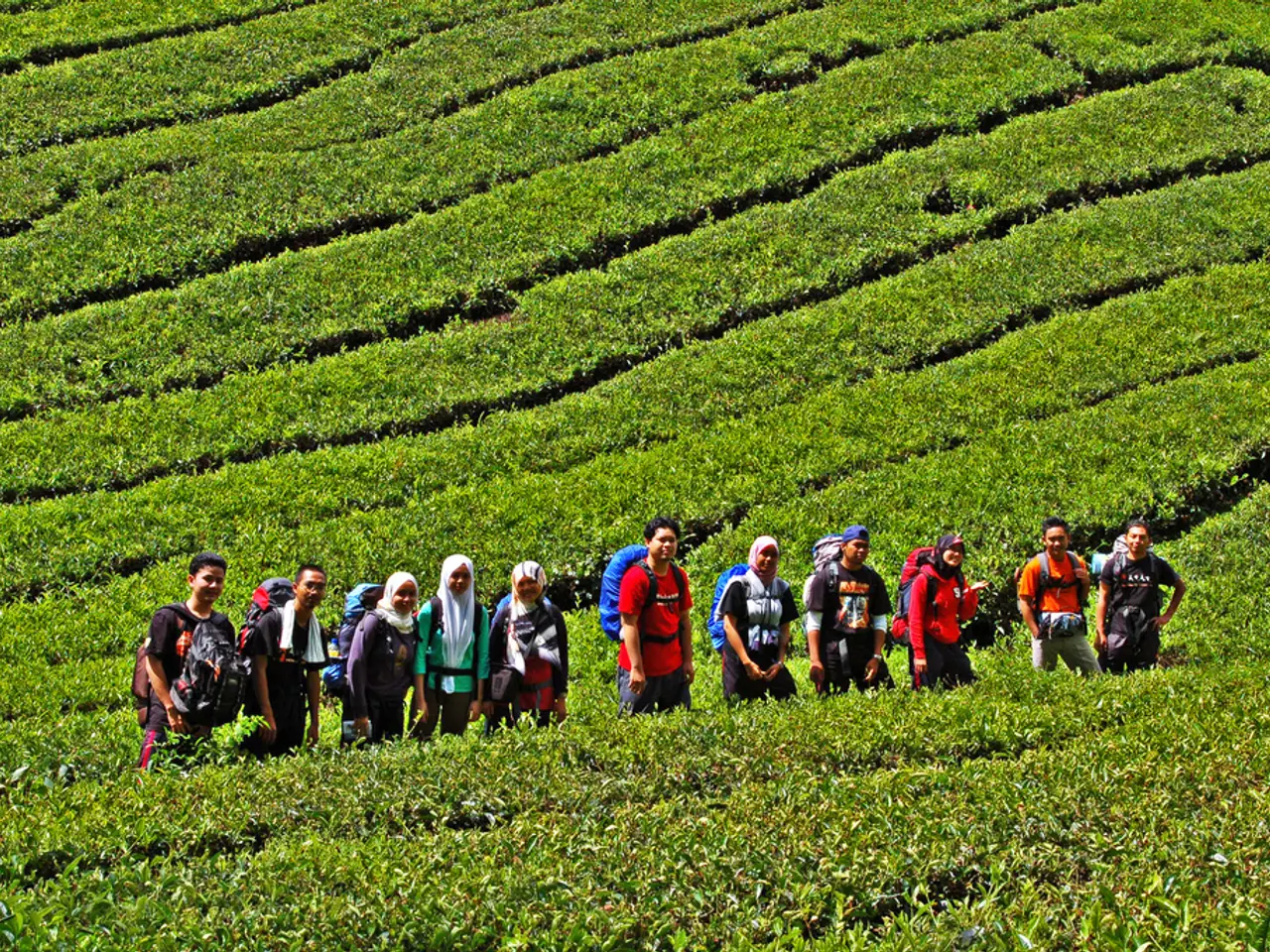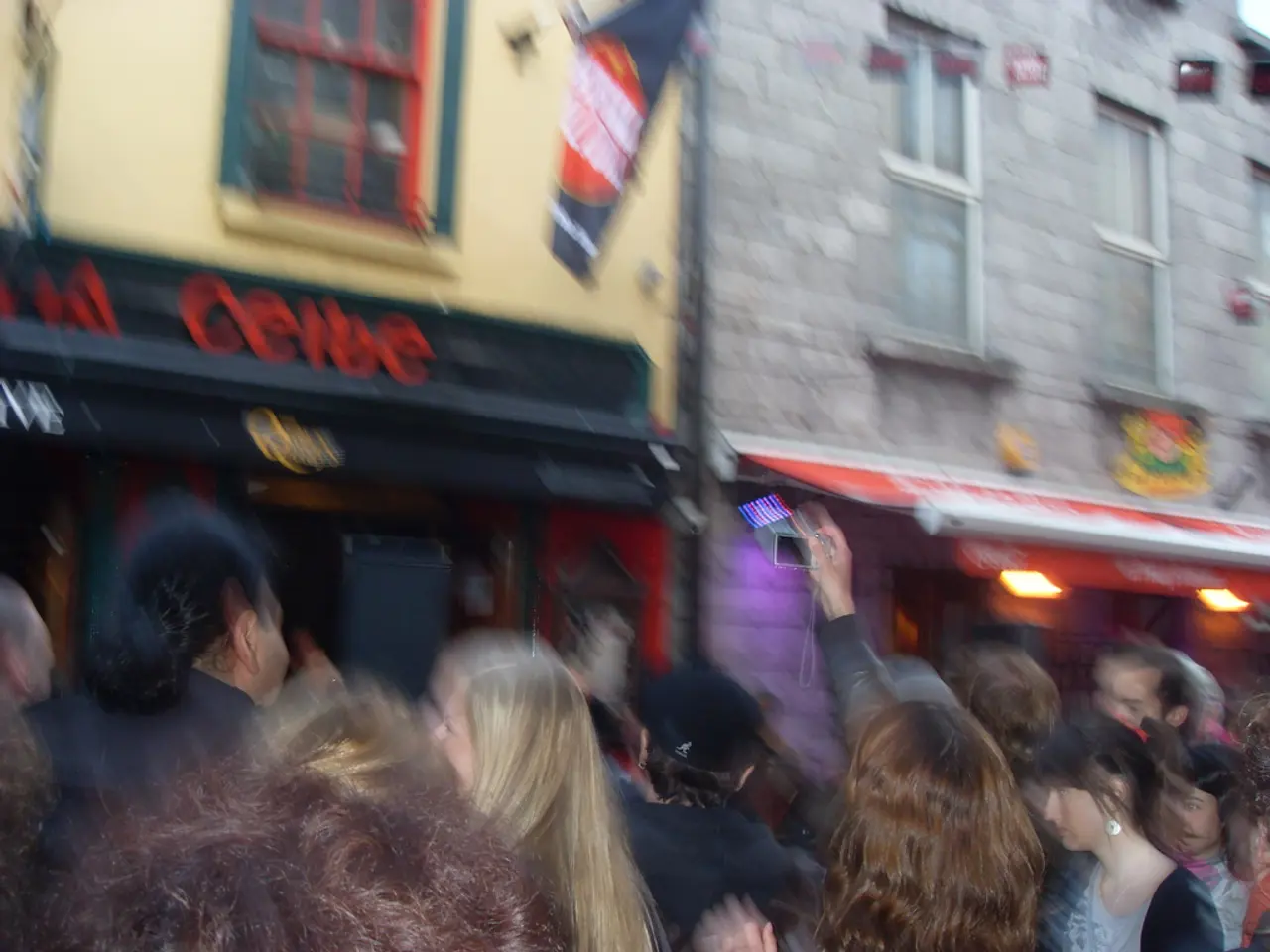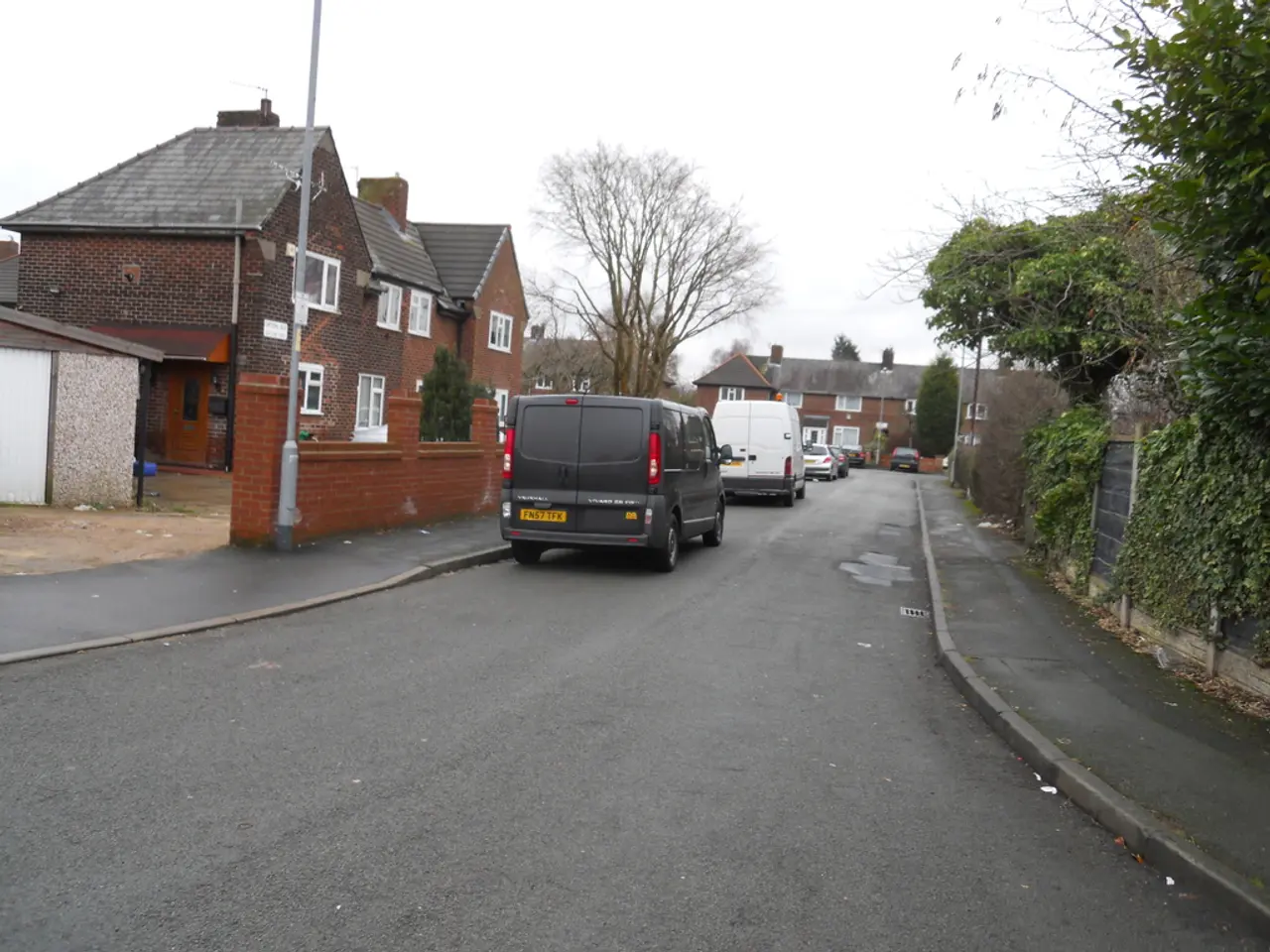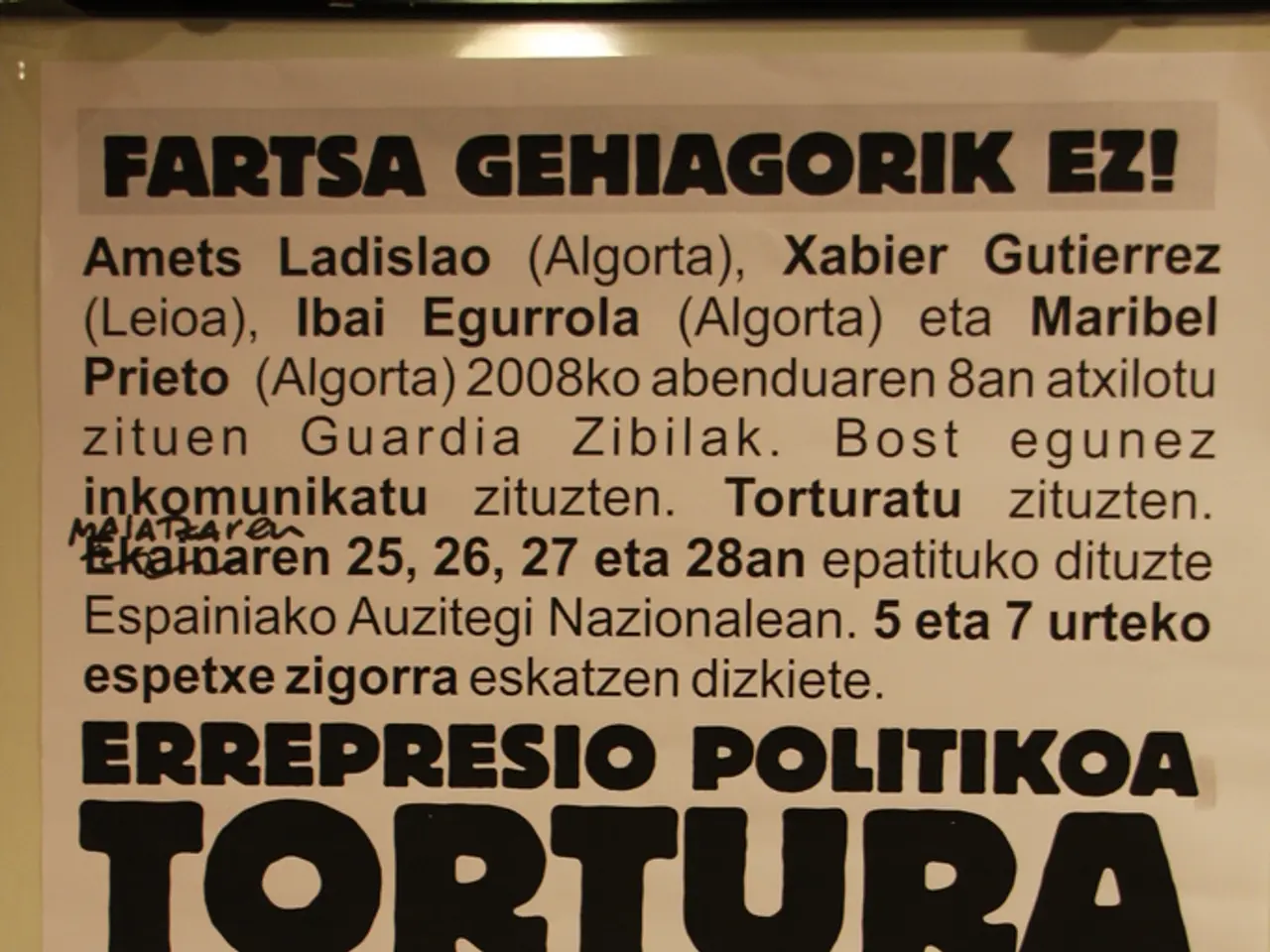Trump ordena la deportación de migrantes, pero son aptos para el trabajo. - Immigrants Voice Desire to Remove Trump from Office, Arguing They Could Succeed in His Previous Role
In a recent discussion on CNBC, US President Donald Trump expressed his views on the need for migrant labor in agriculture. Trump referred to migrants as indispensable labor for agriculture, while simultaneously implying that people from economically disadvantaged groups in the United States are not suited for such work.
Trump's use of the term "inner city" to describe these groups has raised concerns, as historically, the term has been associated with neighborhoods predominantly inhabited by Black people, due to discriminatory laws and lack of economic opportunities. The term continues to be used in political debates as a euphemism for discussing Black people without explicitly mentioning them.
Trump claimed that people from the "inner city" would not perform the kind of work migrants do. He stated, "These people do it naturally. People that live in the inner city are not doing that work. They’ve tried—we’ve tried, everybody tried. They don’t do it."
This narrative echoes a broader strategy in Trump's political communication, which often pits marginalized groups against each other and perpetuates racial stereotypes. By contrasting "inner city" residents with immigrant workers, Trump's rhetoric reinforces racial and cultural divisions and exacerbates social tensions.
Critics accuse Trump of dehumanizing and divisive language, as his comments fit into a pattern where he has used harsh characterizations of immigrants, suggesting they are uniquely suited for certain types of work. This narrative has been compared to authoritarian and fascist rhetoric by academic analyses.
Moreover, Trump's comments could lead to similar accusations of playing into racist stereotypes. Civil rights groups have long criticized the reduction of migrants in political debates to their work, particularly in agriculture and hospitality.
Agriculture in the USA has a history of exploiting Black labor, from slavery to later forms of discrimination. The link between agriculture and the exploitation of Black labor is a significant concern in the discussion of Trump's comments.
Trump's comments about migrant labor could justify strict immigration policies, as they cast immigrant laborers as uniquely valuable but simultaneously portray them as dangerous or subhuman. This supports calls for mass deportation and harsher enforcement actions, as seen in the Trump administrations’ immigration crackdowns.
In essence, Trump’s use of "inner city" in this context is part of a broader pattern of racially coded rhetoric that separates marginalized groups and justifies exclusionary and punitive immigration policies while appealing to a base that feels economically and culturally threatened.
- The European Union, committed to a common policy on asylum, immigration, and refugee matters, is closely observing the political discourse around migrant labor, especially in agriculture, in the United States, given its potential implications for policy-and-legislation and general-news.
- The controversy surrounding US President Donald Trump's comments about migrant labor in agriculture, where he contrasted them with people from "inner city" areas, has highlighted the lasting impact of war-and-conflicts and crime-and-justice issues on migration, but also raised concerns about the politics of racial stereotyping and dehumanization.
- In the context of increasing scrutiny of Trump's rhetoric, it is important to remember that agriculture in the USA has historically been associated with the exploitation of minority groups, including Black people, and any future immigration policies must aim to address these past injustices while fostering unity and cooperation among all people, regardless of their background.






